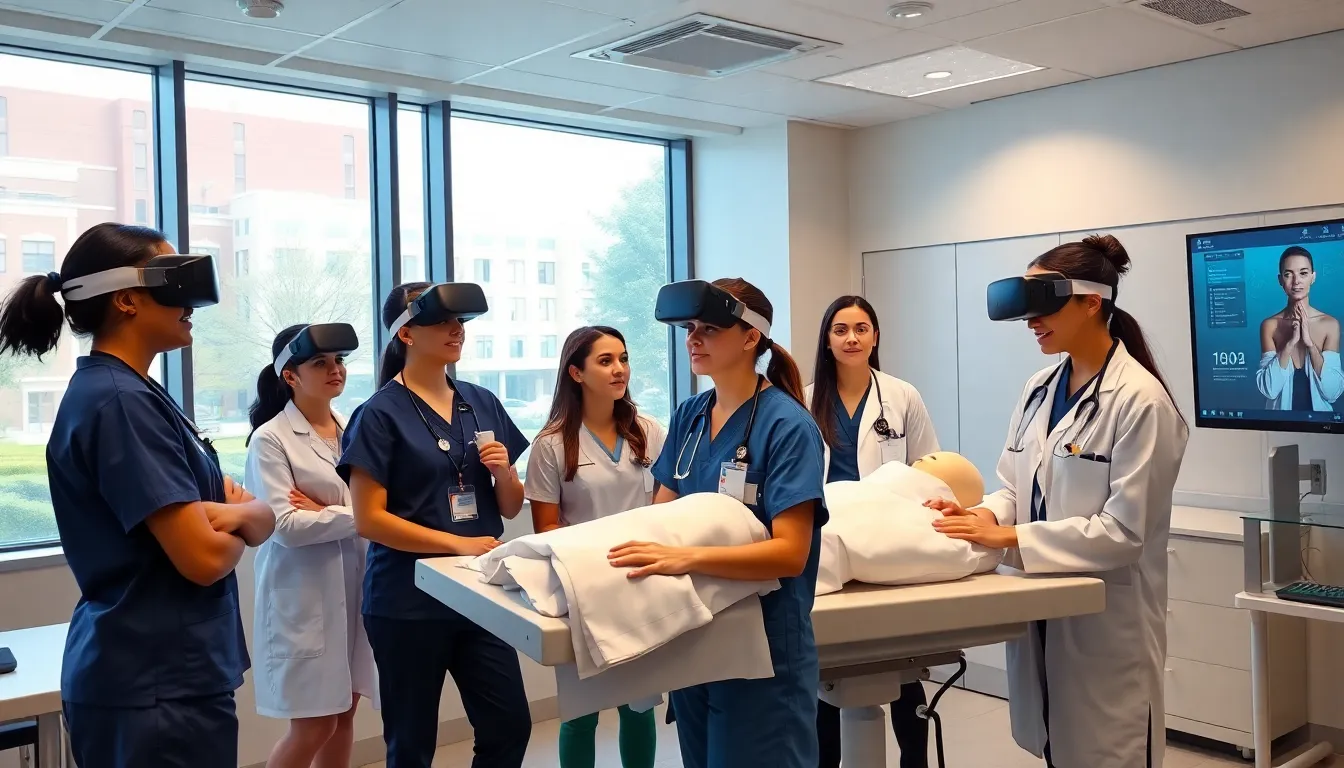Table of Contents
ToggleHave you ever wondered what it takes to whip new nurses into shape amid a rapidly changing healthcare environment? It’s not as easy as herding cats, that’s for sure. Nurse education today is evolving at lightning speed, keeping pace with advancements in technology, innovative teaching methods, and the constant demand for highly skilled professionals. In this text, we will explore the dynamic world of nursing education, from accreditation matters to the challenges faced by educators, and what the future holds for this vital field. Buckle up, because the journey is as fascinating as it is essential.
The Evolving Landscape of Nursing Education

Nursing education is undergoing significant transformation, largely driven by changes in healthcare needs and technological advancements. Traditionally, nursing programs focused heavily on textbook learning, but today’s curriculum is much more diverse and practical. Students now engage in simulation labs where they can practice real-life scenarios without risk to patients.
Besides, universities and colleges have begun to embrace interprofessional education (IPE), where nursing students learn alongside their peers in medicine, pharmacy, and other health disciplines. This collaborative approach fosters a comprehensive understanding of patient care, breaking down silos that once separated medical professionals.
The incorporation of online learning platforms has also reshaped the educational experience. Flexibility in scheduling allows nurses to balance studies with their demanding work schedules, making nursing education more accessible to a broader audience.
Importance of Accreditation in Nursing Programs
Accreditation serves as a quality assurance mechanism, ensuring educational programs meet specific standards. It carries significant importance in nursing education because it impacts everything from curriculum design to the transferability of credits and employment opportunities after graduation.
Accreditation by bodies like the Commission on Collegiate Nursing Education (CCNE) or the Accreditation Commission for Education in Nursing (ACEN) signifies that a nursing program provides high-quality education, equips graduates with necessary skills, and adheres to rigorous academic standards.
So, students often consider accreditation as a vital factor when selecting a program. Without proper accreditation, their hard-earned degrees may not be recognized by employers, which can lead to employment difficulties and hinder their professional growth.
Innovative Teaching Methods and Technologies
In today’s nursing education landscape, traditional teaching methods are increasingly being supplemented, or replaced, by innovative approaches. Blended learning models combine online instruction with hands-on practice, catering to diverse learning styles. Students can benefit from interactive modules, engaging videos, and virtual simulations, all while developing critical thinking skills and clinical competence.
Technologies such as high-fidelity mannequins allow students to experience lifelike clinical scenarios, enhancing their hands-on learning while minimizing risks. Virtual reality (VR) is also making its mark. By donning a VR headset, nursing students can immerse themselves in simulated patient care environments, offering rich and engaging learning experiences.
These advancements not only enhance engagement but also better prepare future nurses for real-world challenges.
Challenges Facing Nursing Educators
Even though the many advances in nursing education, various challenges continue to plague nursing educators. One significant hurdle is the shortage of qualified faculty. Many promising nursing programs struggle to find experienced instructors who can pass on their knowledge and skills to the next generation. This gap often results in larger class sizes, which can dilute the educational experience.
Also, educators must grapple with rapidly changing healthcare practices and technologies. They must keep their own skills and knowledge up to date while also adapting curricula to meet current healthcare demands. Besides, the transition to online or blended learning environments has created logistical challenges, requiring both faculty and students to adapt effectively to new technologies and teaching methods.
Nevertheless, overcoming these obstacles is crucial for ensuring a well-prepared nursing workforce.
The Role of Competency-Based Education
Competency-based education (CBE) is gaining traction in nursing programs as a means to ensure that graduates have demonstrable skills and knowledge. This model allows students to advance through their studies based on their ability to demonstrate mastery of specific competencies instead of adhering to a strict timeline.
With CBE, nursing education emphasizes real-world applications, ensuring students are not just theoretically knowledgeable, but also clinically competent. This approach not only enhances learning retention but also better aligns with the needs of healthcare providers who seek adept professionals capable of delivering high-quality patient care.
As a result, employer satisfaction ratings have risen significantly, underscoring the effectiveness of this modern educational framework.
Future Trends in Nursing Education
Looking ahead, several trends are poised to shape the future of nursing education. An increasing emphasis on lifelong learning is evident, as the healthcare landscape continues to evolve. Continuing education and training will become essential for nurses to keep their skills current and relevant.
Also, there’s a growing recognition of the importance of cultural competence in nursing, preparing professionals to provide effective care for diverse populations. Programs integrating cultural sensitivity training are likely to see greater demand in the coming years.
As technology continues to advance, the integration of artificial intelligence (AI) in educational settings may further redefine learning approaches. AI can provide personalized learning experiences, allowing nursing students to progress at their own pace while receiving tailored feedback.
Finally, the global nature of modern healthcare is prompting more nursing programs to incorporate international experiences, preparing graduates for a world that is increasingly interconnected.




